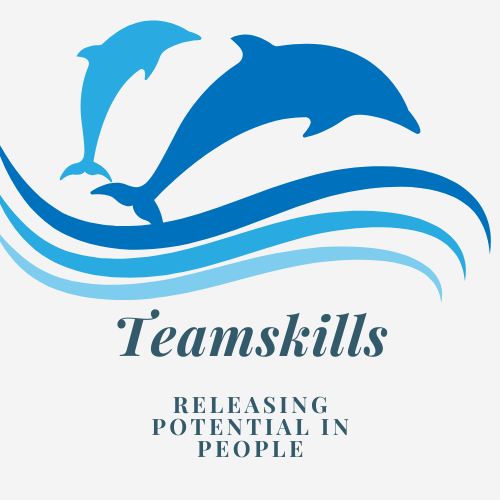Beliefs and Your potential
The following abridged article is taken from our book, Entitled to Respect .
The article in the book covers how to change and modify those ‘beliefs’ that do not support us, whilst replacing them with beliefs that enhance and encourage our growth, development and success.
Frequently people come on our trainings and when stimulated and motivated refuse the call and say, “I can’t do that it’s just not me” or “I could never do that, it’s not what I believe or “I’m too old to change.”
No matter how many techniques and ‘tricks of the trade’ they’re presented with, if they don’t fit in to who they think they are, it will always feel alien to heir sense of themselves and feel alien to who they are.
What you have deep down inside you is a set of beliefs that guide your behaviour and shape who you are. Beliefs are the assumptions we make about ourselves, about others, the world in general and how we expect things to be. They are a conviction and acceptance that certain things are true or real without the necessary supporting evidence.
We usually think of beliefs in terms of creeds or doctrines, and many beliefs are. But in the most basic sense, a belief is any guiding principle, dictum, or view that can provide meaning and direction in life.
Beliefs guide us in many ways:
Act as filters to our perception of the world, we see, hear and feel what we want to see, hear and feel. It’s our reality and perhaps no one else’s.
Either empower you, or limit your behaviour. Many of these limitations are self imposed.
Are invisible but manifest themselves through the actions we take.
Become self fulfilling prophecies….‘argue for your limitations and you have them’
Types of beliefs
Beliefs can be about you, about situations or other people. For example you may have beliefs about who you are that take the form:
‘I am.…
clever
clumsy
successful
lazy
attractive
Or you may have beliefs about other people:
‘never trust a sales person’
‘politicians are all the same’
‘people are only concerned with No.1’
Or about situations and life in general….
‘loyalty is a thing of the past’
‘unless you shout no one hears you’
‘showing vulnerability is a sign of weakness’
There are beliefs that prevent you from doing things – phrases that begin with: ‘I can’t….‘I mustn’t…
…show my feelings’
…let people down’
…tell others what I really want’
There are Beliefs that compel us or oblige us to do things – phrases that begin with:
‘I must…….‘I should…
..get this absolutely perfect’
..give as good as I get’
..show them how clever I am’
Where do our beliefs come from?
We sometimes tell a story on our programmes that resonate with people about how beliefs are formed.
A young couple, Sally and Martin, got married.
One night when they were on their honeymoon on some sun drenched island sipping their ‘sundowners’ and watching the big orange ball sink slowly below the horizon, they turned to each other and began musing about their wedding day. How their parents had in every way “pushed the boat out” to give them the perfect day.
They then began thinking of their eventual return home and how they were going to repay the generosity of their parents.
They decided to invite their Mums and Dads to the inaugural meal they would cook as newly weds.
The afternoon of the great day arrived and Sally and Martin busied themselves preparing the lunch.
At an early stage in the preparations Martin noticed that Sally took out the very large joint of meat and cut off roughly a third, put it away in the fridge and placed the other two thirds in the oven. Martin was curious why Sally did this but knowing Sally I believed she had good reason for doing this.
The lunch was a great success and they were showered with compliments over the cooking. Spurred on by their success, Sally and Martin decided to widen the net and invite the grandparents as well next time.
The day arrived and they were both again in the kitchen preparing the food. Martin watched again as Sally took the joint of meat, cut off roughly a third and placed two thirds in the oven. Given that they were cooking for more people than before, Martin was curious and asked Sally why she had done this. Sally’s reply was that she had learned this approach from her mother and had always done it this way.
Still curious he left the kitchen and went to ask Sally’s mum why she did this. Her reply was that she had learned to cook from her mum and had always done it that way.
Fortunately Sally’s Grandma was also there and Martin turned to her with the same question. Her reply was…
“When Granddad and I first got married we lived in a poky little flat that had the bare necessities and a very small cooker. What ever size of joint we bought we always had to chop a piece off or it wouldn’t fit – and from then on it just become a habit’ – a habit that she continued even when she moved to a more spacious home.
Many of our beliefs are formed at an early age between the ages of 0-7 years. The “child” within us will have taken on board unreservedly many of the things we now hold deeply as truths.
We will have adopted sayings and dictums from “big” people in our lives because we love and respect them, have learned to trust what they say and believe in what they say. By “big” people we mean parents, grandparents, teachers, older siblings etc.
We are equally influenced by the society and culture in which we live, we grow to accept and value certain things and devalue others.
We may experience traumatic events in our lives and in the moments of shock, import other peoples’ strong views and opinions and not question them.
A course member told us of a traumatic event in her life when she was ‘stood up’ at the alter waiting for a bridegroom who never turned up. In that moment some one whispered in her ear a barrage of expletives and the dictum, “typical you can never trust men!” This she believed from then on, it blighted her life and relationships for a very long time (her words not ours).
Enabling or Unhelpful Beliefs
Some beliefs restrict and limit your growth, keep you fearful and insecure, encourage you to think you are not worthy of love and respect. They seduce you into feeling powerless and ineffective,
Other beliefs help you grow, expand your horizons, and build your confidence. Holding them helps you believe you can make a positive impact on your world, and support you in your desire to be happy and healthy.
Read the book, Entitled to Respect to see what beliefs you hold and which are disempowering or enabling.






